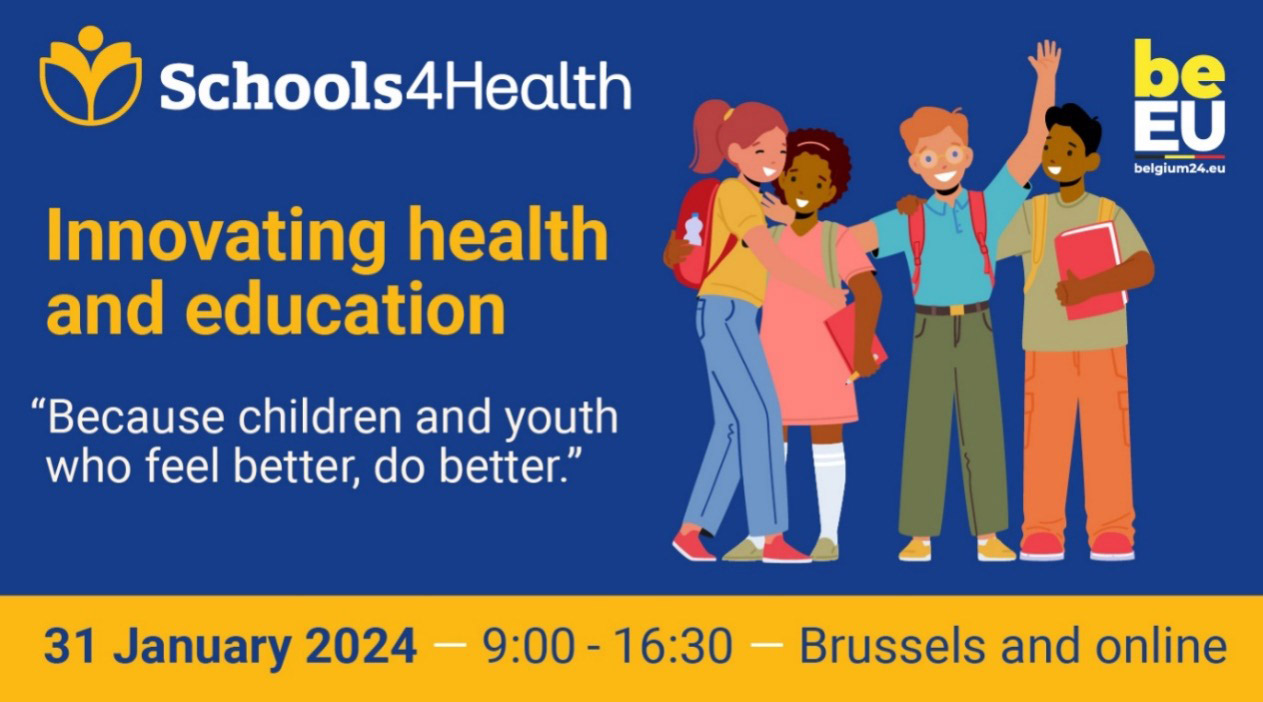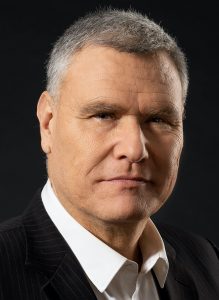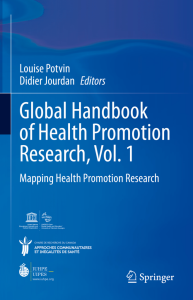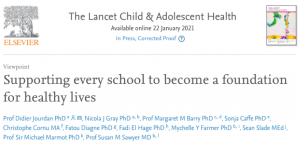Source: EuroHealthNet, published 5 February 2024
Test scores make it very clear: education systems in Europe are in crisis.1 The physical and mental health of children and youth is in decline in many parts of Europe, and high levels of social and health inequalities persist.2 Meanwhile, low pay, stress and administrative burdens are leading to teacher shortages and burn-out. All of these factors are diminishing the potential and life opportunities of children and youth across the continent.
The Schools4Health Policy Seminar, organised under the auspices of the Belgian Presidency of the Council of the EU, discussed new approaches to put health and wellbeing at the centre of school policies and structures.
“Children and youth who are in good physical, social and mental health generally have fewer problems at school and are more likely to do well as adults. It is crucial that we create the right conditions for all young people to be healthy and to feel good. Schools are ideal places to work on this, since that is where we can reach all children and youth.”
Hon. Minister Hilde Crevits – Vice-Minister-President of the Government of Flanders, Flemish Minister for Welfare, Public Health and Family. Watch video address
Health promoting school approaches not only include health in school curricula, but also ensure that the overall culture, and the structures in schools contribute to the health and wellbeing of everyone in the school community. Evidence reflects that such approaches improve not only the physical and mental health of students and teachers, they also lead to better educational outcomes.3
“A core obstacle to the implementation of the approach is the pressure on teachers and schools to deliver on core curricular subjects. Focusing on health is regarded as an additional task, rather than a solution. Investing in the health and wellbeing of teachers and young people will also contribute to their achievement and performance as educators and students.”
Dr Kevin Dadaczynski, keynote speaker, Professor of the Fulda University of Applied Sciences Germany and Co-Chair of SHE Network research group
The Seminar showed that, when it comes to successfully implementing health promoting school approaches, there is plenty of work ahead. National policies lead only 29% of schools in Europe to work with such approaches.4 School systems, structures and policies often do not allow for innovation for health and wellbeing due to existing high level of demands on schools.
“Recent policy initiatives at EU level, such as Pathways to School Success emphasise the inseparability of school success and wellbeing, both of learners and their teachers. Addressing this link requires a whole-school approach and close cooperation.
Schools4Health and the Seminar pave the way for a stronger cooperation between education and health policy makers and practitioners to address wellbeing at school, ensuring that learners are given all chances to achieve their full potential and be better prepared for the future.”
Oana Felecan, Policy Officer on school education, equity and wellbeing, DG Education, Youth, Sport and Culture, European Commission
Another central theme of the Seminar was that implementing health promoting school approaches to health is not a responsibility of schools alone. Policy makers, public authorities, practitioners and the broader community around schools have a shared responsibility. They must ensure that measures and tools embed the key considerations of a health promoting school approach and are drivers of positive change and healthier school environments.
“There is an urgency to improve education settings for the wellbeing of children, adolescence and teachers alike. A renewed focus on school conditions and environments that improve mental health, nutrition and physical activity is crucial. This requires close coordination between sectors, from municipal to European Union policy levels. EuroHealthNet is proud to lead the Schools4Health efforts in this area.”
Caroline Costongs, Director of EuroHealthNet
More about the Schools4Health event
The Seminar took place on 31 January 2024 in Brussels, in the context of Schools4Health Initiative, which is coordinated by EuroHealthNet and involves 13 organisations from 10 countries across the EU. It was organised under the auspices of the Belgian Presidency of the Council of the EU and welcomed over 75 experts and policymakers in the field of health and education, in addition to more than 150 participants who joined online.
For more information on Schools4Health watch our new video and visit www.schools4health.eu.

1 PISA – PISA (oecd.org)
2 HBSC study | Health Behaviour in School-aged Children study
3 Jourdan D, Gray N, Barry M, Caffe S, Cornu C, Diagne F, El Hage F, Farmer M, Slade S, Marmot M & Sawyer S (2021). Supporting every school to become a foundation for healthy lives. Lancet Child and Adolescent Health
4 Vilaça, T., Darlington, E., Rosário, R., Bessems, K., Velasco, & Velasco, V. (2019). SHE mapping report: Lessons learnt from policies andpractices of SHE member countries. Haderslev, Denmark: Schools for Health in Europe Network Foundation (SHE)













 About Didier Jourdan
About Didier Jourdan
